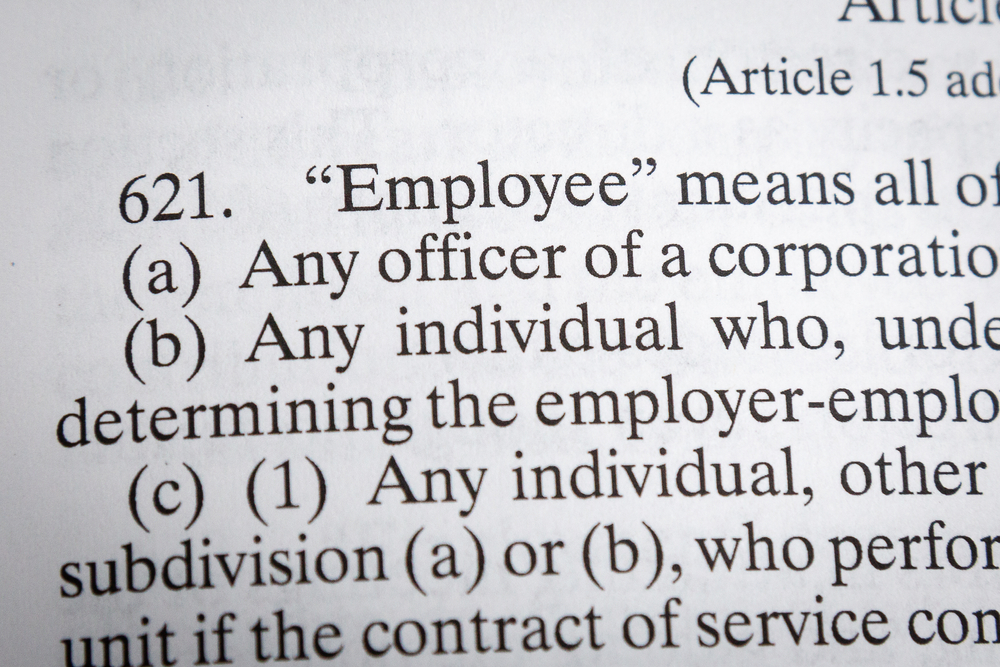As more Americans take on work within the gig economy to make ends meet, exploring the legal issues that those with side hustles face is vitally important. Determining employment status and other employee benefits is necessary to ensure that those employed within the gig economy have access to workers' rights. Regardless of whether a company hires you as an independent contractor or employee, where you live may determine what workers’ protections you have access to. California and Massachusetts have begun to tackle the divisions between independent contractors and employees. Other states are paying attention to developments and monitoring whether legislation may be required in their states.
Gig Worker or Employee?
One of the most difficult decisions you can make when taking on a job is determining whether the company that hired you is hiring you as an employee or an independent contractor. The IRS suggests three factors to understand when deciding whether a person is an independent contractor or an employee.
- Type of relationship - is there a written contract or employee-type benefits?
- Financial - are aspects of the worker’s role controlled by the payer, such as how the worker is paid, who provides tools and supplies required, and whether expenses are reimbursed.
- Behavioral - does the company control what the worker does and how their role is performed?
When factoring in these three questions, it’s important to determine whether a hire is an independent contractor or an employee. Across the country, more and more Americans are having this conversation with their employer, family and friends to determine whether they are employees or independent contractors and whether they have access to workers’ protections.
Massachusetts Ballot Measure
Earlier this year, Massachusetts began the process of adding a ballot measure to November’s election. The ballot measure, supported by app-based companies like Lyft, DoorDash, Instacart, and Uber, would ask voters to decide whether drivers for this type of business are independent contractors. Additionally, if voters determined that drivers for app-based companies are not employees but independent contractors, this would mean drivers are not entitled to many of the benefits employees are provided access to.
Approximately 130,000 signatures have been collected by Flexibility and Benefits for Massachusetts. Over 80,000 certified signatures must be collected and confirmed in order to make it on the ballot. Attorney General Healey certified that this measure could be added to the ballot in November.
But in early May, the ballot measure was reviewed by Massachusetts’ Supreme Court. Justices expressed reluctance to permit the measure as it may go too far by limiting app-based companies’ liability for accidents that involve their drivers. Justice Wendlandt shared that she was concerned about the ballot measure as it would make drivers independent contractors and establish that drivers are not agents of app-based companies. This would prevent customers from suing the app-based businesses.
Additionally, when a ballot measure is added, Massachusetts has strict rules. Each ballot measure must focus on one question without diverging into separate subjects. In this measure, the ballot measure included language regarding who is an independent contractor, who is an employee, establishing a minimum wage for app-based drivers, companies paying healthcare stipends to drivers, paid sick time, and paid medical and family leave.
Massachusetts Supreme Court rejected the app-based companies' drive to include this controversial ballot measure when voters head to the polls in November. Justice Kafker indicated that the ballot measure was a too vaguely worded proposal that would restrict app-based companies’ liability when drivers are involved in vehicle collisions. The ballot measure was too vague and contained too many unrelated subjects.
The app-based companies and their industry-funded committee - Flexibility & Benefits for Massachusetts Drivers, have vowed to continue to challenge the ballot measure in court.
Related: Who Pays for Gig Workers Who Are Injured on the Job?
California’s AB-5 and Prop 22
In 2019, California passed AB-5, which requires companies, such as app-based businesses like DoorDash, Uber, and Lyft, that hire independent contractors to classify them as employees. This would provide workers benefits like paid time off, health insurance, unemployment insurance, and minimum wage. There were few exceptions, including real estate agents, attorneys, and insurance agents.
Shortly after AB-5 was passed, Proposition 22, a $200 million initiative driven by app-based companies, passed a statewide vote in 2021, stating that drivers for these businesses are independent contractors. Prop 22 overrode many of the worker protections established by AB-5. However, shortly after Prop 22 was passed, Alameda County Supreme Court Justice Frank Roesch ruled that Prop 22 was unconstitutional and must be struck down. While Prop 22 is appealed in the courts by app-based companies, workers remain independent contractors without access to employee benefits.
As more Americans face financial uncertainty, more are turning to the gig economy to help make ends meet. With states taking up the mantle of determining employee versus independent contractor's employment details, those working within the gig economy are watching to see what workers’ protections may be available. California and Massachusetts are just the beginning of this battle to determine whether those working for app-based companies are independent contractors or employees and what state labor standards apply.














